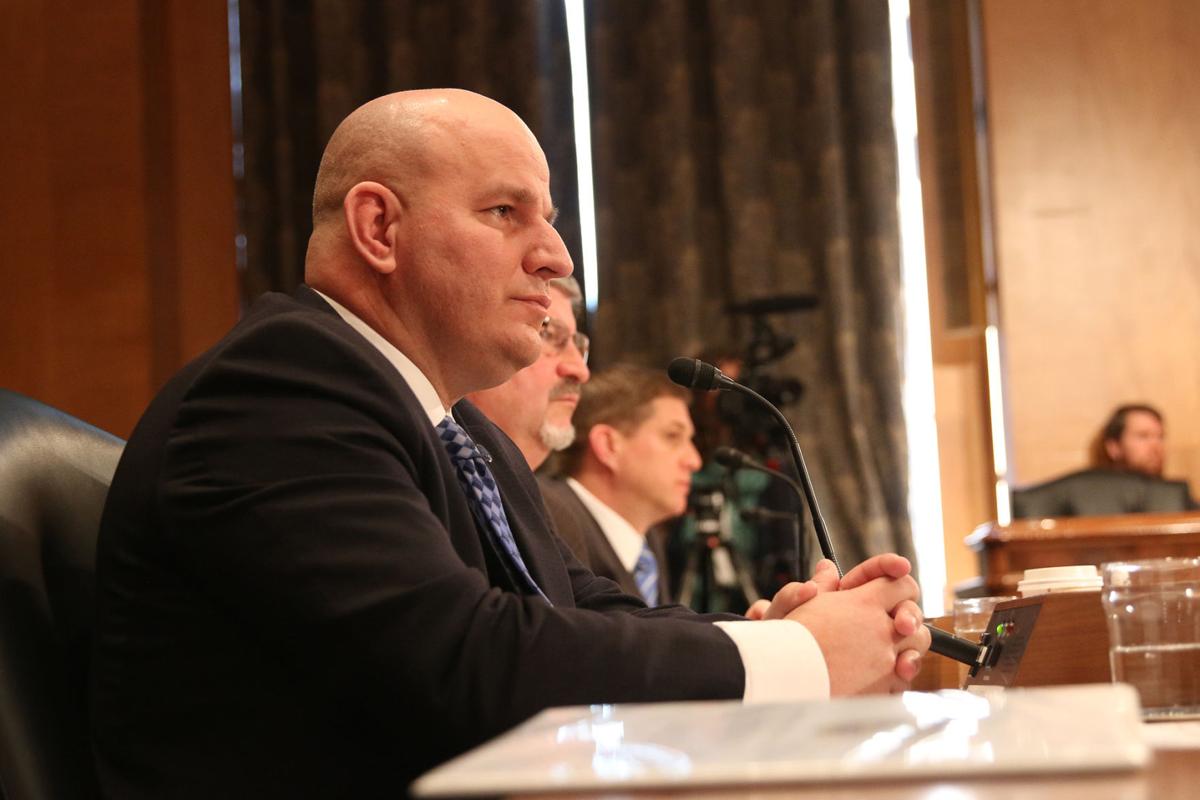WASHINGTON — A Trump administration plan to hire thousands more border and immigration officers is “desperately” needed, but unlikely to happen quickly at agencies plagued by low morale and a cumbersome hiring process, witnesses told a Senate panel Wednesday.
Labor union leaders for Customs and Border Protection and Immigration and Customs Enforcement testified that CBP has yet to fill the 2,000 jobs Congress authorized in 2014. At the same time, low morale has led to a situation where “we’re losing more agents than we can hire,” said Brandon Judd, the president of the National Border Patrol Council.
“Although the news of hiring new agents and infrastructure is welcome, we have to take a realistic approach in understanding the hiring and retention challenges Border Patrol has faced over the last 20 years,” Judd said in testimony prepared for the hearing by the Senate Committee on Homeland Security and Governmental Affairs.
The hearing was called to look at the current ability of the Department of Homeland Security agencies to hire 15,000 more agents — 5,000 CBP officers that President Trump called for in one of his first executive orders and 10,000 ICE agents that Secretary John Kelly identified in a directive.
The only witnesses at the hearing were representatives for border and immigration agents. Sen. Claire McCaskill, D-Missouri, said in her opening statement that she asked Homeland Security “to send anyone — anyone! — to testify at today’s hearing and DHS has failed to provide a single representative.”
The CBP said in an email after the hearing that it will be able to meet “critical hiring needs” by recruiting people who have already been vetted by the government — military and law enforcement officials, for example. The statement said the agency plans to maintain agency standards by giving applicants polygraph examinations.
But witnesses at the hearing said current administration of polygraph tests is just one of the bureaucratic problems plaguing the agencies. The Border Patrol does not administer polygraphs correctly, they charged, failing three times more people than other federal agencies and turning away 70 percent of its applicants.
Hiring efforts are also hindered by unattractive work situations that drive off current workers and discourage potential applicants, they said. Those problems include a lack of accountability for supervisors who created “overheavy” and “overbearing” management at a time when the agencies need more officers in the field, critics said.
National Treasury Employees Union President Anthony Reardon said border agents are often forced to work long hours with little public gratitude, making it hard to keep and attract agents. He told the committee that some border agents are given “involuntary temporary duty assignments” that entail 16 hour shifts for days in a row, at locations far from home.
Some have told him that they start falling asleep on their drives back home, he said.
“That’s just wrong to do to human beings,” Reardon said.
Judd told the committee in a written statement that the agency hired only 485 agents last year — a pace at which the agency would take more than 10 years to meet the administration’s hiring demand.
Witnesses said additional agents are needed to enforce security at ports of entry, prevent drugs from coming across the border and deport violent immigrants who are here illegally.
McCaskill said she supported the hiring — which she said was more often requested by agents she met with than a border wall — but asked how Homeland Security agencies will be able to hire thousands more employees if they can’t even keep staff levels at the current hiring cap.




